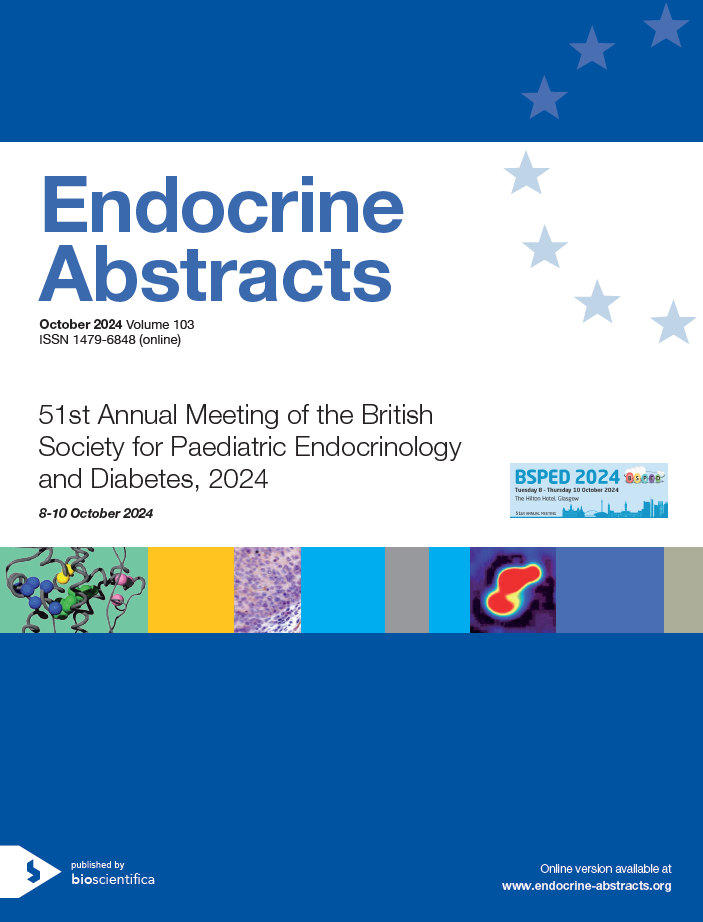
51st Annual Meeting of the British Society for Paediatric Endocrinology and Diabetes
Glasgow,
UK
08 Oct 2024 - 10 Oct 2024

Poster Presentations
Diabetes 5
ea0103p91 | Diabetes 5 | BSPED2024
Strategizing early detection and follow-up for type 1 diabetes: The EDENT1FI project
Besser Rachel , Vercauteren Jurgen , Overbergh Lut , Bonifacio Ezio , Narendran Parth , Bergholdt Regine , Strube Thorsten , Dayan Colin , Niemoeller Elisabeth , Bosi Emanuele , Pociot Flemming , Latres Esther , Hurtado Carmen , Raposo Joao Filipe. , Baccara-Dinet Marie , Reschke Felix , Fogh Kamille , Cohen Ohad , Peakman Mark , Ziegler Anette , Mathieu Chantal
ea0103p92 | Diabetes 5 | BSPED2024
Dinky-betes: a multi-disciplinary clinic for the under 7’s
Stephenson Tracey , Harpham Megan , Waldron Rebecca , Byatt Jo , Mullier Caroline , Trentham Sarah , Bell Sophie , Gelder Carole
ea0103p93 | Diabetes 5 | BSPED2024
Factors associated with diabetic ketoacidosis in patients with intensive use of continuous glucose monitoring
Ayoola Omolola , McNally Ciera , Ross Katie
ea0103p94 | Diabetes 5 | BSPED2024
Establishing clinical follow-up in early-stage pre-symptomatic type 1 diabetes: results from the oxford pre-T1D clinical service
Swaby Rabbi , Jones Sarah , Damazer Katharine , Besser Rachel
ea0103p95 | Diabetes 5 | BSPED2024
How many children are out there? A BSPED survey of children and young people with early-stage type 1 diabetes
Swaby Rabbi , Randell Tabitha , Martin Rebecca , Shetty Ambika , Millar Sarinda , Sachdev Pooja , Elleri Daniela , Hambling Clare , Besser Rachel
ea0103p96 | Diabetes 5 | BSPED2024
Endocrine dysfunction following positive thyroid and adrenal antibodies in children with newly diagnosed type 1 diabetes
Dempsey Orla , Pinsker Jonathan , Lucas-Herald Angela K. , Allison Gavin , Whyte Karen , Kuehne Vaiva , Pearce Hilary , Sharma Amita , Rashid Rajeeb , Craigie Ian , Lamb Fiona , McNeilly Jane , Shaikh M Guftar.
ea0103p97 | Diabetes 5 | BSPED2024
Review of glycaemic control in type 1 diabetes patients following change from standardised insulin pump to hybrid closed loop
ea0103p98 | Diabetes 5 | BSPED2024
Type 2 diabetes mellitus in children and young people: a single uk paediatric diabetes centre experience
Ali Salma , Joy Elina , Allison Gavin , Kuehne Vaiva , Rashid Rajeeb , Shaikh Guftar , Whyte Karen



